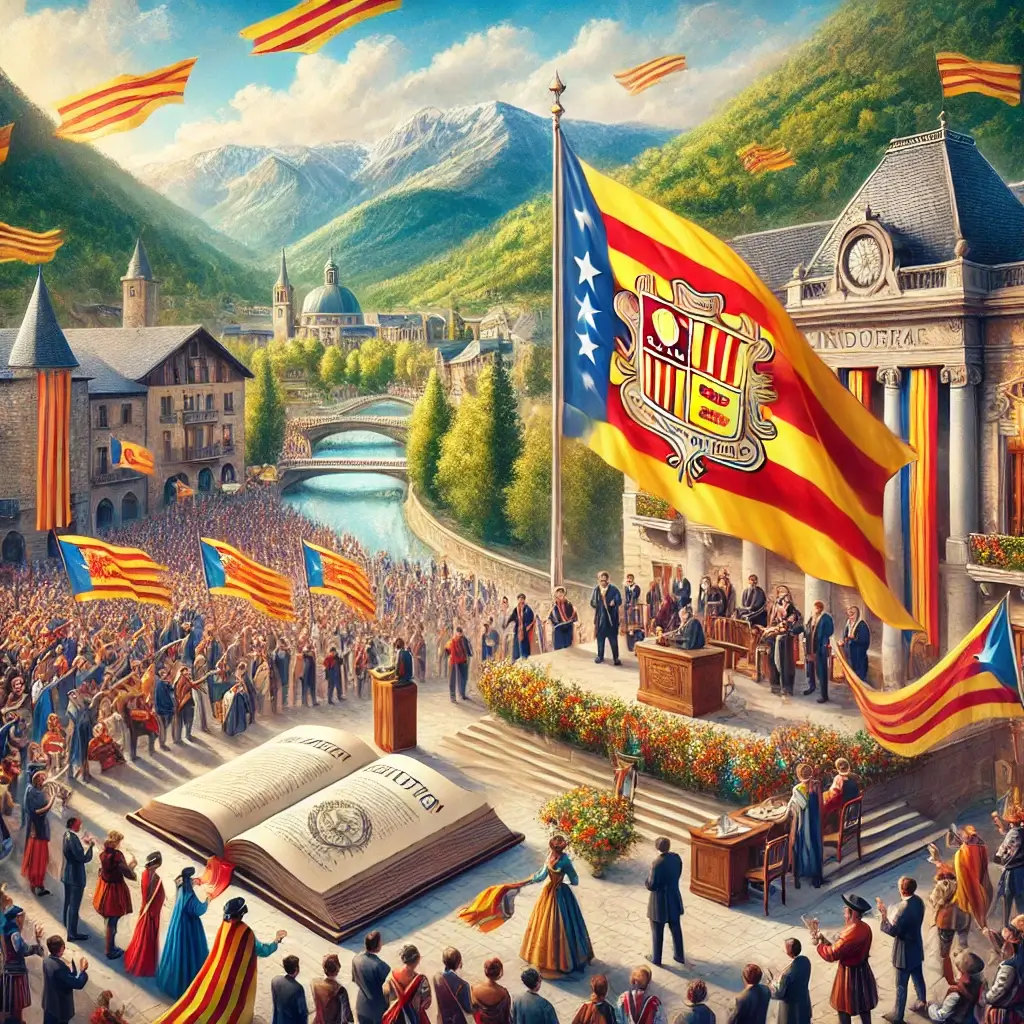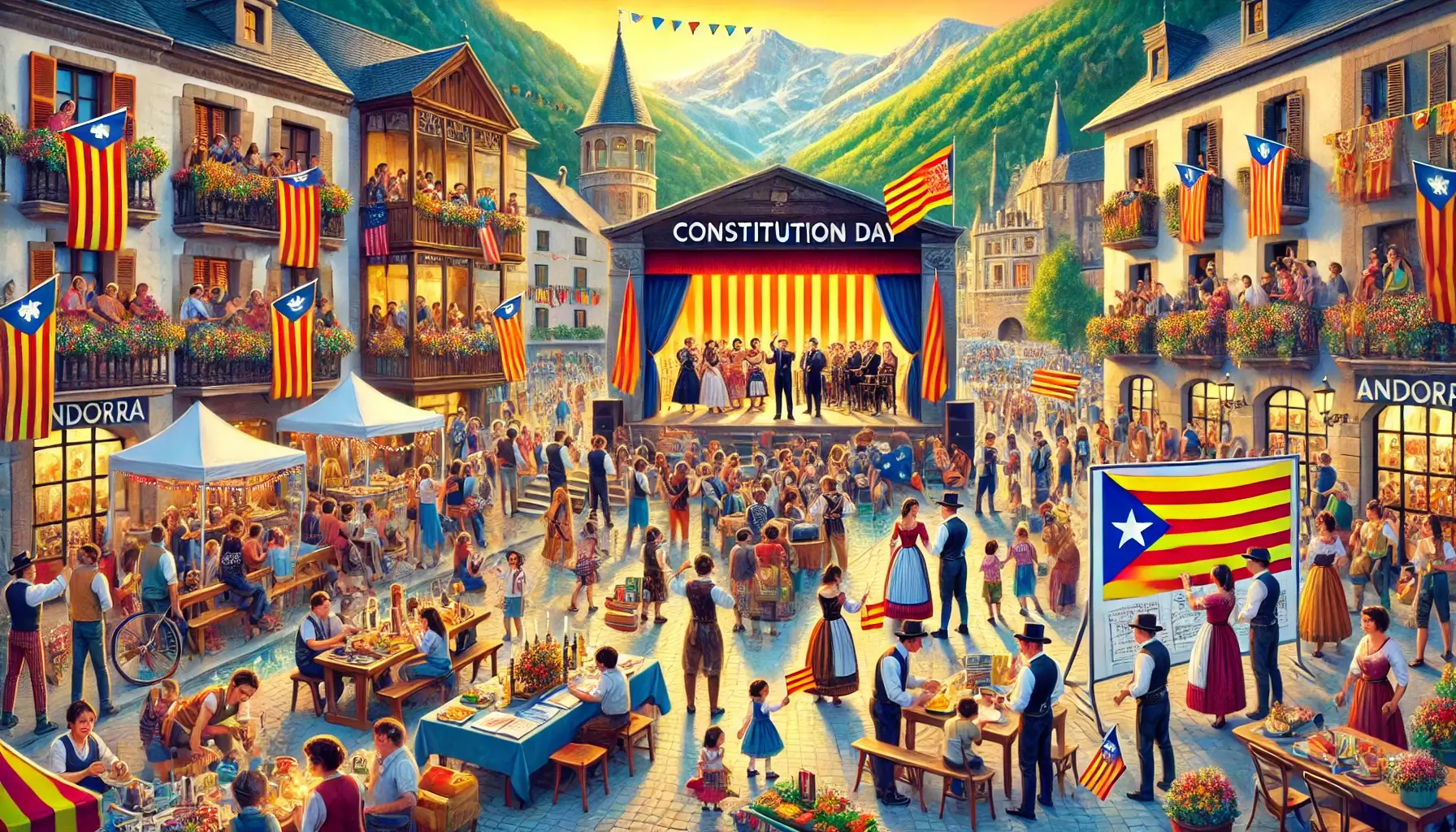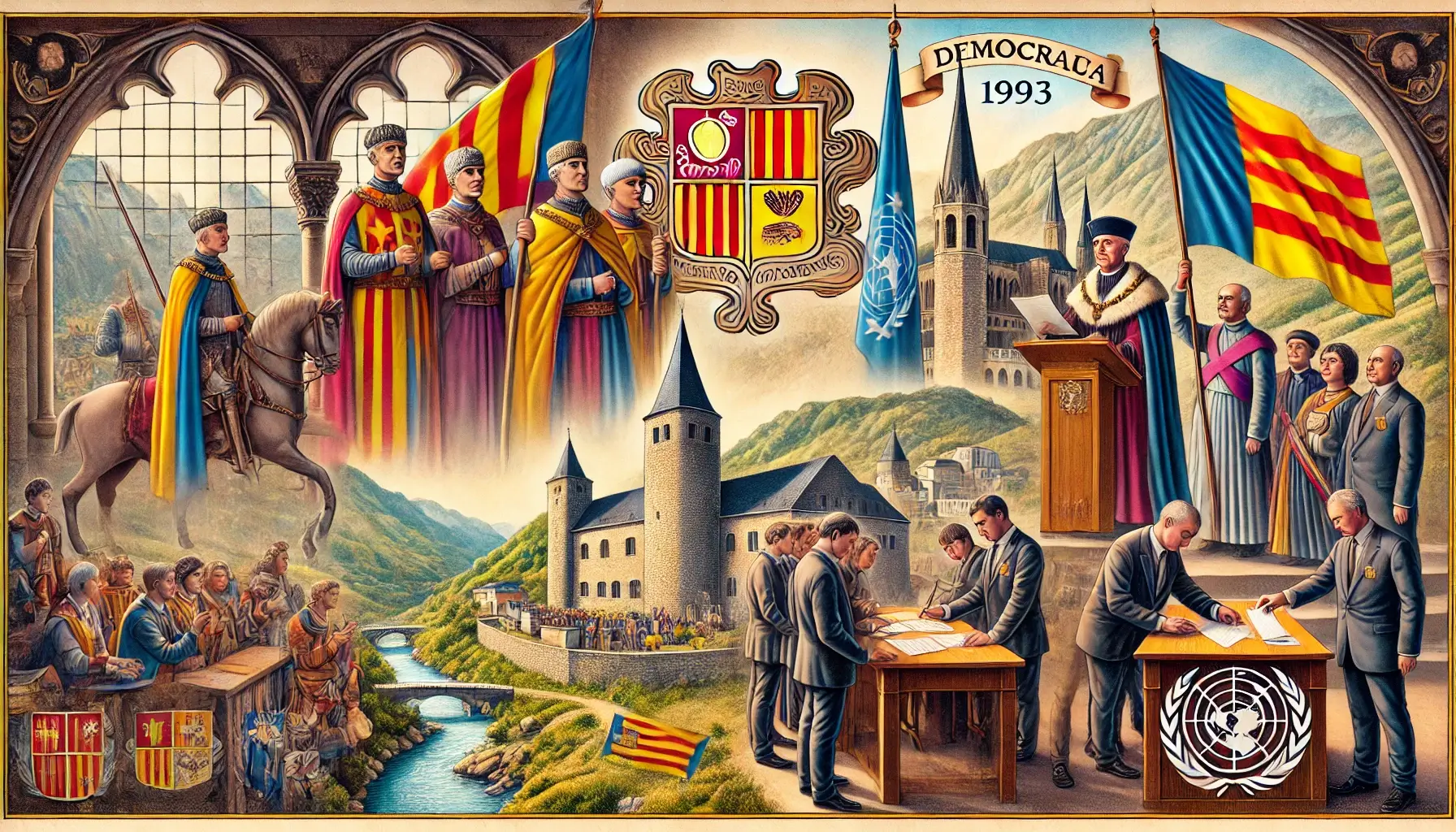Constitution Day in Andorra
Use our holiday API to get the exact date of Constitution Day in Andorra in every year.
Constitution Day in Andorra (Dia de la Constitució): Significance, History, and Celebration

Hence, Constitution Day in Andorra, known as Dia de la Constitució, is a major national event, marking the enactment of the constitution of the country. The day marks the start of modern Andorran democracy and the shaping of the political framework in the country. Andorra's people hold this day very much dear to their hearts.
The upcoming article will tell about what Constitution Day is, how it has been celebrated and where it has come from, and what normal activities go around this important day in the country's calendar.
What is Andorra's Definition for Constitution Day?
Constitution Day is the day that marks the adoption of the Andorran Constitution on 14 March 1993. This was the moment Andorra became officially a sovereign state with a democratic form of government, having been previously a parliamentary co-principality. The Constitution included fundamental rights and duties of Andorran citizens and described how the government should behave, particularly in balancing power between the three branches of government itself: Legislative, Executive, and Judiciary.
This is not just a legal reformation on the way to the identity and independence of Andorra, long tied up with two princes, one from France and one from Spain, sharing the co-headship of a unique feudal governance system. But with the constitution, Andorra entered the international arena as a modern democracy.
When and How is Constitution Day Celebrated?
It is on March 14 every year that the country celebrates Constitution Day. This day in 1993 was the day when Andorrans voted during a national referendum to approve the new constitution, thus constituting Andorra as a democracy.
Public and Official Celebrations
Constitution Day is marked by a range of official ceremonies throughout Andorra. These ceremonies often take place at key government buildings, including the General Council of Andorra in Andorra la Vella, the capital city. High-ranking officials, including government leaders and members of the Andorran parliament, typically attend these events to honor the country's democratic achievements.
Cultural and Community Events
Although they are complemented by official ceremonies, these national days mark the beginning of cultural and community events celebrations among Andorrans. Many towns and cities offer concerts, public events, and theatrical performances celebrating Andorran history and culture. Schools usually prepare children for this day by conducting special educational activities about the significance of the Constitution and Andorra's historical political background.
Local art exhibitions and cultural activities will also be available to boost national pride and understanding of the way through which Andorra has come into modern nationhood.
Are Banks, Schools, and Museums Open on Constitution Day?

Constitution Day is a public holiday in Andorra, which means that many institutions are closed for the day, allowing people to take part in the festivities and celebrations. The following are typically affected:
- Banks: Closed.
- Schools: Closed.
- Government Offices: Closed.
- Museums and Cultural Centers: While some museums may close, many remain open with special programs related to Andorra's political history and cultural heritage. Visitors and locals alike can explore Andorran history, often with free or discounted entry on this day.
It's always a good idea to check in advance if you're planning to visit specific locations, as holiday schedules can vary.
The Historical Path of Constitution Day in Andorra
The Road to a Modern Democracy
As was true of other feudal societies in Europe, Andorra was a small and anachronistic feudal relic with a constitutional set-up before 1993. It had two princes-the President of France and the Bishop of Urgell (Spain)-who shared dominion over it. The actual model of dual principle co-principality was unique and became more archaic vis-a-vis the increasing modernization of Andorra. So, by the will of the people and basic civil freedoms, there was much ground to demand for and move towards democratic governance.
The culmination of the movement towards democracy was that Andorrans voted resoundingly for the constitution in a national referendum in March 1993. It was intended to modernize the legal and political framework of the country such that the adoption of a constitution would pave the way for Andorra to become an international member, joining for the first time the likes of the United Nations.
Critical Events Leading Up to the Constitution
- 1278: Andorra's co-principality system was established under the Pareatges, legal agreements between the Count of Foix (France) and the Bishop of Urgell (Spain).
- 19th Century: Increasing calls for reform as other European nations democratized.
- 1970s-1980s: Modernisation of the Andorran political system discussed, leading to the negotiation of a constitution.
- March 14, 1993: Andorra adopted its constitution by referendum, thus becoming a constitutional parliamentary democracy.
Significance of the 1993 Constitution

With the Andorran Constitution of 1993, radical transformations became permanent in the governance of the country:
Political Structure
- Separation of clearly demarcated powers
- Establishing a modern parliamentary democracy while keeping the historic Co-Princes system
- Defining the role of the General Council (Consell General) as that of the parliament
Citizenship Rights
- Guaranteed basic human rights and freedoms
- Adopt Catalan as the official language
- Defined criteria for citizenship and naturalization processes
International Recognition
It was through the adoption of this Constitution that Andorra received recognition from the international community as a sovereign state and thus gave the country the possibility to:
- Join the United Nations as a member in July 1993
- Join the Council of Europe as a member in 1994
- Establishing diplomatic relations with other nations
Inputs for Studies: the Constitution and Political System of Andorra
Informed about the Andorran law and politics for students from the University of Andorra. These are a number of online services that give detailed information concerning the governmental structure of the country.
What Activities Can You Do on Constitution Day?
For those visiting Andorra during the Constitution's Day, here are some things to do:
- Attend Official Ceremonies: Government events are held in Andorra la Vella and other cities in conjunction with formal speeches and great acknowledgments of the country's past.
- Enjoy Cultural Events: Music, theater, and art exhibitions celebrating Andorran heritage are held throughout the day.
- Visit Museums: Find out more about Andorra's political history and constitution by visiting many local museums that host special exhibitions during the day.
- Visit the Natural Beauty of Andorra: Since this holiday is a public holiday for most people, they usually seize that opportunity to explore the natural beauty of Andorra, including its beautiful mountains and historical places.
Conclusion
That much said; Constitution Day in Andorra is more than merely another public holiday; it commemorates a transition that the country helped bring about from dictatorship to a democratic system that ensures rights and freedoms for the people. Each 14th of March, the Andorrans will convene to reflect on how far their country has journeyed, be part of official and cultural events, and have a day representing national pride. To some, citizens or visitors, it is a day that gives insight into the history and culture of this small but proud nation.
Commemorating Constitution Day in Andorra would entail knowing all about the promises of democracy, as well taking part in the festivities that surround this day.